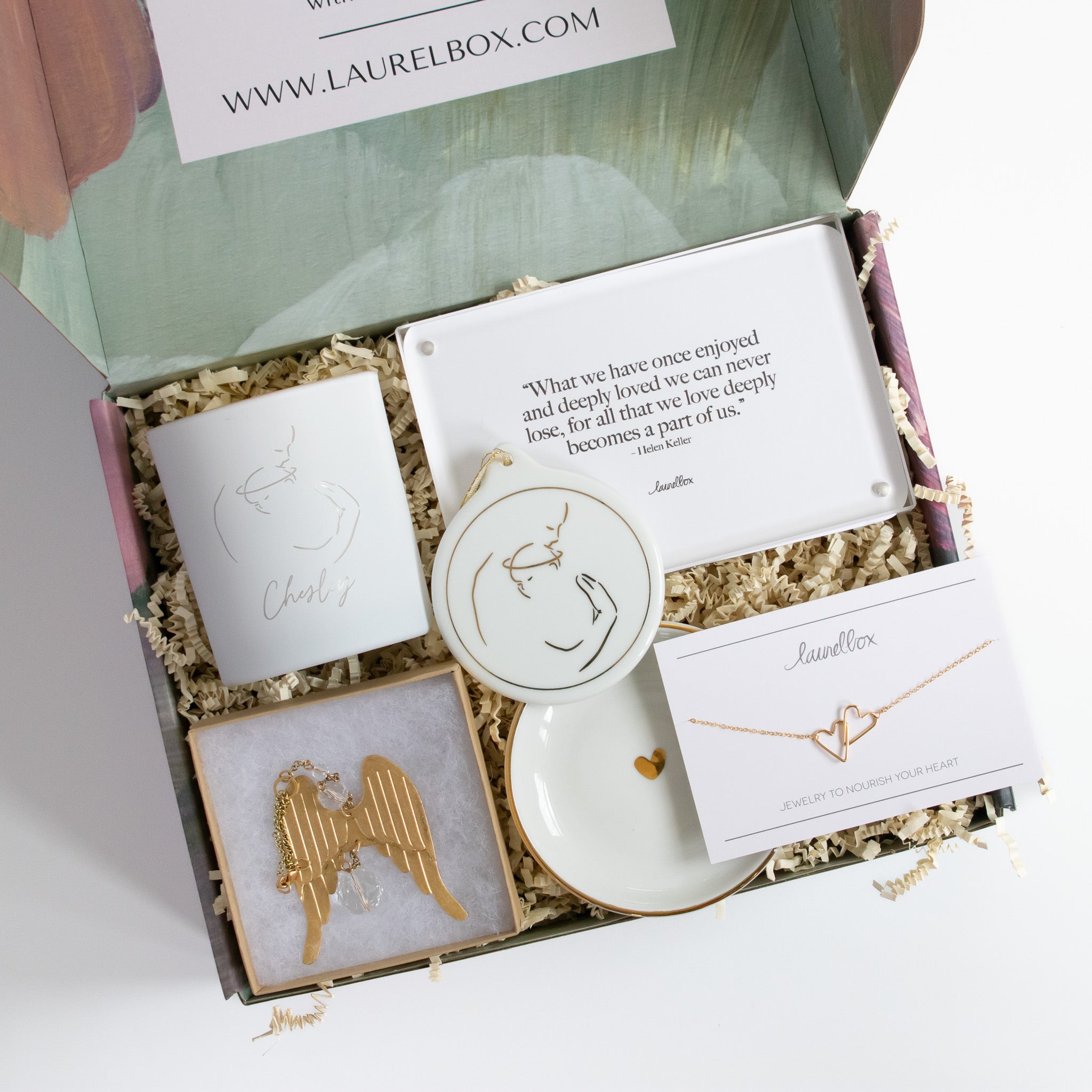How to Help a Friend Who is Grieving
If you are working to support a friend who is grieving, it can sometimes feel really intimidating. It’s scary... I totally get it! I honestly still sometimes feel nervous about how to best support grieving friends, even though I’ve spent the last six years running a business that is fully focused on grief. But here’s the secret — you don’t need all the perfect words and you don’t need answers. Here’s what you do need — an open and understanding heart, no expectations, and no timeline. If you have those things, you’ll do just fine. And if you need a great starting point, we’ve put together a few simple pointers of how to support and help a grieving friend.
Lead with kindness and selflessness
The most important thing you can do to support a grieving friend is to lead with kindness. You don’t have to be perfect in your work to support a friend, but you can give amazing support when you wholeheartedly and humbly keep showing up. You should let go of your own perceptions of what life looks like after loss, your expectations on your friend, and any thoughts about a timeline. Remember that this is their hard season to navigate – so work to be gentle, be kind, be simple, and be brave.
Reach out
Because talking about loss can feel so intimidating, it can be tempting to either ignore a friend’s loss, or only lightly address it once and never bring it up again. However, this can actually be really painful. Instead, reach out and acknowledge the loss. In these dark moments, it’s really important to feel like someone cares. Reaching out in both big ways (such as bringing meals, helping with funeral arrangements, or helping around the house) and in little ways (sending random texts or picking up the phone), makes a huge difference.
Listen
If you ask anyone who has gone through a loss who listened to them after their loss – it doesn’t matter if it’s forty years later — they will remember. I remember with vivid detail one of my best friends who answered her phone at 11pm and listened to me crying into the late hours of the night.
Because seeing someone you love in pain is so uncomfortable, it can be tempting to comfort their pain or fill the silence with well intentioned words of advice. But in general, it helps to focus on listening so you can carefully give your friend the space to speak. Be sure that during conversations about loss, you center your grieving friend.
Be careful and avoid cliches
I wish it wasn’t true, but I know so many people who have experienced an absence of empathy from friends and family after their loss. Even if their support system is well meaning, a lack of understanding can do a lot of harm. Dealing with a breakdown of a support system after loss is really hard. It often means that the griever has to also navigate deep waters of forgiveness while also dealing with their grief.
Working to withhold your opinions, perceptions, or judgements can go a long way to ensure you are supportive with your words and actions. There are also a few cliches that in general don’t feel supportive after loss – we generally recommend you avoid these common statements.
Send a card or gift of support
For friends and families who live far apart and during this era of social distancing, thoughtful cards and gifts can show love and support. When you’re isolated and grieving, receiving an unexpected gift can be really meaningful. I personally love to gift our Light in Dark Places Candle. It is affordable, gentle, and meaningful. It pairs really sweetly with a gift from our Self Care Collection to make a beautiful and thoughtful combination.
Supporting and helping a grieving person means you give them a sliver of yourself. It might feel awkward and inconvenient and uncomfortable. It might not get acknowledged or thanked. But it will get remembered. So no matter how you choose to do it, I want to encourage you to support that grieving friend. She’s worth it.








